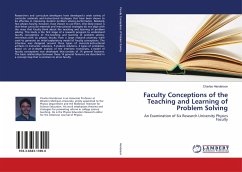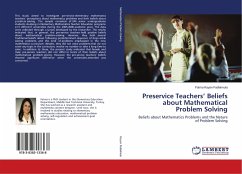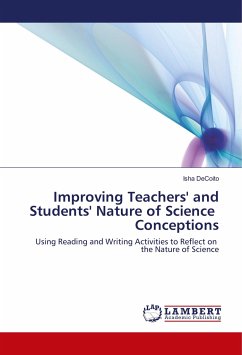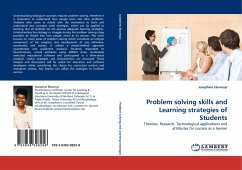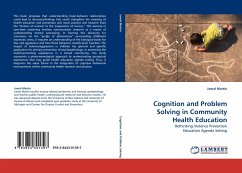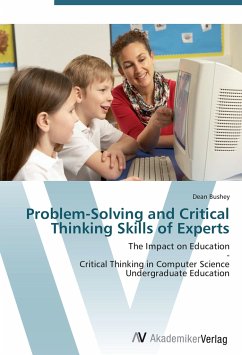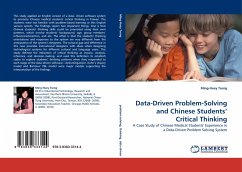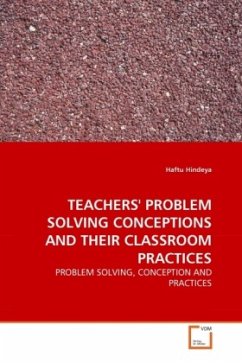
TEACHERS' PROBLEM SOLVING CONCEPTIONS AND THEIR CLASSROOM PRACTICES
PROBLEM SOLVING, CONCEPTION AND PRACTICES
Versandkostenfrei!
Versandfertig in 6-10 Tagen
39,99 €
inkl. MwSt.

PAYBACK Punkte
20 °P sammeln!
These days the world is changing in a constant state flux demanding human beings to have skills that enable them to cope up with. Hence,education should be geared towards creating opportunity for people to possess knowledge and skills.In doing so,teaching of problem solving should be given major emphasis. However, many educators contended the failure of schools in acquitting students with pertinent kills attributing to factors such as teachers' conceptions and skills, the ways textbooks are organized, and etc. Hence, the purpose of this study is to describe and explicate teachers' conception o...
These days the world is changing in a constant state flux demanding human beings to have skills that enable them to cope up with. Hence,education should be geared towards creating opportunity for people to possess knowledge and skills.In doing so,teaching of problem solving should be given major emphasis. However, many educators contended the failure of schools in acquitting students with pertinent kills attributing to factors such as teachers' conceptions and skills, the ways textbooks are organized, and etc. Hence, the purpose of this study is to describe and explicate teachers' conception of problem solving and their classroom practices based on the contention that accounts of the research can benefit teachers and students. Grounded on a hermeneutic phenomenological method,data were collected using detailed interview, document analysis and observation. The descriptions and analysis of teachers' conceptions and practices could serve as important sources of information on the challenges teachers and students face in practicing problem solving and in the effort towards producing problem solving citizens .



